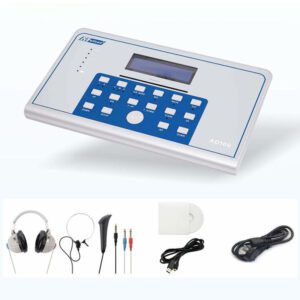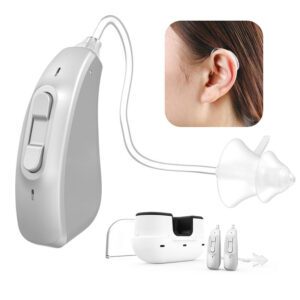The Growing Challenge of hearing Loss in the Elderly
As the average human life expectancy increases and population aging becomes more pronounced, the issue of hearing loss among the elderly is becoming more critical. The degeneration of the auditory system leads to hearing loss, which significantly impacts language comprehension.
This can worsen social isolation and is often associated with serious mental health issues, such as depression, anxiety, and cognitive decline. Hearing loss is a major factor affecting the quality of life in older adults.
Typically, age-related hearing loss, or presbycusis, is bilateral, symmetrical, and progressive. Although the exact causes are complex and involve both environmental (such as noise and ototoxic drugs) and genetic factors, presbycusis often runs in families. While it is an inevitable part of the aging process, there are ways to mitigate or delay its progression.
Environmental and Lifestyle Factors to Consider
To minimize hearing loss progression, it is essential to avoid environmental noise whenever possible. Maintaining a balanced lifestyle that includes regular exercise and a healthy diet is also crucial.
Staying calm and avoiding excessive mental stress can positively affect overall health and hearing. A diet low in salt, fat, and cholesterol but rich in fiber helps prevent chronic diseases such as hypertension, diabetes, and atherosclerosis, all of which can accelerate auditory degeneration and worsen hearing loss.
Medication Risks and Precautions
Ototoxic drugs can pose significant risks to the elderly due to their reduced ability to metabolize medications. This is especially true for individuals with kidney problems.
Therefore, it is essential to use medications that could damage hearing, such as certain antibiotics and chemotherapy drugs, with caution. Physicians should assess these risks before prescribing treatments to elderly patients, always weighing the benefits against the potential for accelerated hearing loss.
The Importance of Early Hearing Aid Use
Selecting and using hearing Aids early can greatly slow the progression of Hearing Loss. Individuals with mild to moderate hearing impairment should not wait for their condition to worsen before considering hearing Aids. Early intervention is crucial in maintaining auditory function and preventing further decline.
Hearing aids, when used in the early stages of hearing loss, can delay the degeneration of hearing abilities and improve the quality of life for the elderly. It is highly recommended that patients avoid waiting until hearing aids become an absolute necessity, as this can result in missing the optimal window for intervention.



